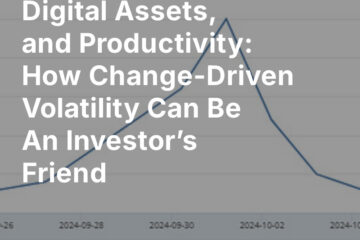Digital Currency “ICOs” and the Regulators
Two weeks ago, we wrote an introduction to digital currencies in which we pointed out how fast these new instruments have proliferated. Nearly a thousand are currently available — and almost a hundred more are now listed on coinmarketcap.com than when we ran the article. (A lot of readers found the piece helpful; if you haven’t seen it, please feel free to request a copy.)
As we’ve discussed in recent weeks, these various forms of “gold for the digital age” take the basic innovations of bitcoin — encryption and a decentralized ledger system — and modify them to add desired features, such as improved privacy or better transaction processing speeds. So far, bitcoin is still the largest, with a market cap of about $39 billion as we write — but the next largest competitor, ether, has gone from a $700 million market cap to a $19 billion market cap since January 1 of this year. Ether has risen on the strength of its underlying platform, which is designed to facilitate the execution of electronic contractual agreements. Among the hundreds of other “alt coins,” there are certainly many with advantages that will be compelling, although most will be “zeroes.”
New coin launches are proving to be interesting in their own right — particularly in their wider ultimate implications for financial markets. So far this year, new coins have raised more than $1 billion. Many investors in bitcoin and ether are buying new coins at their launch, or “initial coin offering” (ICO) using their existing cryptocurrency stash — a kind of diversification. And of course, ICOs exist completely outside the regulatory framework that governs the initial public offering of stock in newly listed public companies.
In our previous coverage of digital currencies, we have pointed out some of their potential pitfalls for would-be investors and speculators. For example, unexpected technological developments that could threaten digital currencies’ cryptographic foundations; or the need of most users to interact with the world of digital currencies through a system of intermediaries which may not be as secure from fraud as the pure technical design of these instruments would suggest. There is also the specter of internal disagreements leading to “forks” in which currencies split into rival versions in response to some technical challenge or problem. (Ether has already weathered one of these, with its platform splitting into ethereum and ethereum classic. Bitcoin itself is nearing such a moment, with rival camps unable to agree on an approach that will speed transactions.) These growing pains will result in volatility, as if there weren’t already enough of that for digital currency speculators.
The rise of prominent ICOs, and the first stirrings of digital currency hedge funds, suggests to us another issue on the horizon. Digital currencies are above all, as we observed two weeks ago, a gauntlet thrown down in front of government and financial regulators. Regulators’ responses thus far have been either hesitant or permissive. As digital currencies become more prominent — as the news flows, transaction volumes, market capitalizations, and hedge fund activities grow — regulators around the world will become less sanguine about the existential challenge being made to their power. How will the communities of the various cryptocurrency systems respond? Will they accommodate — or will they entrench?
Bitcoin Is Facing A “Fork,” and May Split Into Two Competing Currencies

We do not know how this, the most basic cryptocurrency conflict, will play out — but speculators should be cautious and aware of the regulatory mood. We believe that cryptocurrencies will be able to survive regulation, since evading it has been part of their core raison d’être. But the process in which they accommodate themselves to a regulatory presence, or fail to do so, will shape their future — and determine if they will become more predictable virtual commodities, or remain a “wild west,” with the excitement, freedom, and risk that that entails.
Certainly, cryptocurrencies will make for interesting times.
Investment implications: As we have noted in our previous coverage of cryptocurrencies, we don’t believe that they’re investments at this stage — the risks and uncertainties are too large. Speculators should be comfortable with those risks and uncertainties. Some level of technical expertise is necessary for intelligent speculation. Speculators should also monitor the regulatory atmosphere carefully, since regulators’ attention, no matter what the eventual outcome, could cause severe volatility, or even the collapse of coin ecosystems.



